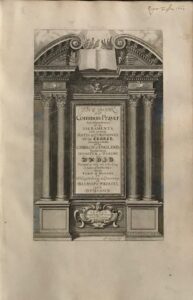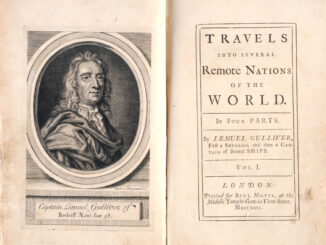Mark McKillion, Ulster University MA History graduate and volunteer for the Library in 2022, carried out research on The Book of Common Prayer (1662) (object ID P001436054).
You can adopt this book for £250, and support the work of the Library, caring for our wonderful collections, and inspiring present and future generations!
Prior to the English Reformation, the Commonwealth would have primarily relied on the use of separate liturgical compilations such as the Missal, the Breviary and the Pontifical to represent the teachings of the Church of England. However, the 16th century would see a major shift towards a standardisation and uniformity in the liturgy. King Henry VIII overturning the papal supremacy set the precedent for various religious texts and documents to be translated into English.
Likewise, James A. Devereux provides an analysis of the use of doctrine in the Book of Common Prayer, as he highlights the efforts of Archbishop Thomas Cranmer to uphold his ideals of an English society which shows an appropriate amount of reverence towards God, with one such example being the beginning of the Holy Communion, which declares that the participants “may perfectly love thee, and worthily magnify thy holy name.”
[1] Devereux, “Reformed Doctrine in the Collects of the First ‘Book of Common Prayer,’” pg. 49-64.
[2] Watson, “The Latin Collects in the Book of Common Prayer,” pg. 36-37.
Similarly, Devereux notes that while Cranmer was translating the Holy Scripture, he states that it “contains all things necessary to salvation,” as it had influenced the Church of England’s position on critical issues in the early 16th century such as the king’s divorce and the authority of the Catholic Church[1] . As a result, the compilers of the English Prayer Book would have been subject to as much or as little creative freedom as was necessary to fulfil the fundamental needs of the Church, thereby following Cranmer’s example by studying the established doctrine of the Holy Spirit and expanding on it in their own writings.[2]




